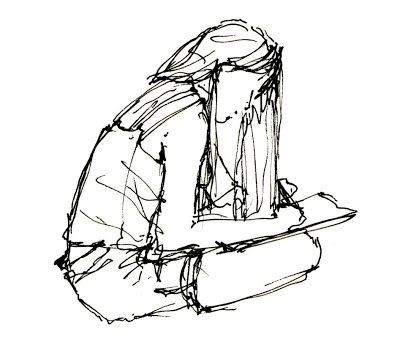Reflections
Debriefing the past year in a productive way
By Tessa Devine, Lifestyle Staff Writer
I often find myself dreading the new year. Now, don’t get me wrong, I love the parties, visiting family and singing Auld Lang Syne at midnight—the fireworks and sparkling water are not the problem. What I don’t love are the resolutions and reflections.
As the year is coming to a close, new gym memberships, strict diets and fresh journals ready to be written come back around like clockwork. As much as I appreciate the optimistic energy in the air on Dec. 31, I think the new year can be more difficult than people let on.
Sometimes, reflecting is hard. If you had a really challenging year, it can be painful to go back and relive that. If you had a really good year, it can be nostalgic and almost sad to think about those memories.
Most years I find myself avoiding self-reflection altogether, partly because I struggle to reflect without spiraling, and partly because I often don’t know where to start. Lately, I’m starting to realize that self-reflection—the kind that benefits you—isn’t necessarily supposed to be comfortable; it can be uncomfortable out of fear of what we might discover about ourselves. However, we cannot reach our full potential if we cannot be honest about where we can improve as humans.
Reflection also has major benefits. Studies have shown that reflection increases productivity (Di Stefano et al. 2016). Reflection at the end of a task or event allows you to ground yourself in your intentions and goals, putting you in the optimum headspace for future productivity and achievement. In other words, the best way to successfully achieve your New Year's resolutions is by first reflecting on all the highs and lows of the year before. Another benefit is that reflecting allows a person to recognize their growth and strengthens self-efficacy. Appreciating hard work is crucial to avoid burnout (and is something that I often forget). It also significantly improves confidence. Finally, reflection can help you identify unhelpful habits, which may then lead you to start breaking them. All of these benefits, and others, can add up to make you an overall more dynamic and positive person.
I’ve decided to start small this year; a week before the new year I am going to sit down for thirty minutes and journal about the year—allow it to all spill out, even if it’s in an incoherent way. Then, at the thirty-minute mark, drop the pen, close the notebook and put it away.
Not only will writing help me process this year a little better, but it will be something I can look back on next year and the years after to remember in great detail who I was in the year 2021. I challenge you to try this, to push through that uncomfortableness and dedicate time to reflecting on who you were a year ago and what you have learned in the past 365 days.
Here are some potential journaling questions to get you started:
What were the top three highs from this year?
The three most impactful lows?
What was the hardest lesson I learned this year?
Who are you grateful you met this year?
What are you proud of yourself for this year?
What would you change? What do you hope for next year?
What songs and shows have been your favorites this year?
I often find myself dreading the new year, and I think that’s because change is hard for me. However, I know that I owe it to myself to take a few minutes and recognize how much I’ve grown.—and you owe it to yourself as well. I hope this year, you can willingly settle into that bitter-sweet feeling as the clock strikes midnight.
Sources:
Di Stefano, Giada and Gino, Francesca and Pisano, Gary and Staats, Bradley R., Making Experience Count: The Role of Reflection in Individual Learning (June 14, 2016). Harvard Business School NOM Unit Working Paper No. 14-093, Harvard Business School Technology & Operations Mgt. Unit Working Paper No. 14-093, HEC Paris Research Paper No. SPE-2016-1181, Available at SSRN: http://dx.doi.org/10.2139/ssrn.2414478

